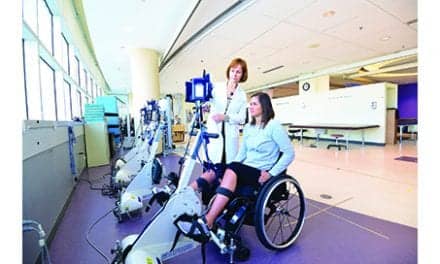As the country grapples with the fallout of the Arizona shootings, Representative Gabrielle Giffords provides a source of hope as she recovers from a gunshot wound to the head.
As part of the rehabilitation team, occupational therapy practitioners are instrumental for individuals recovering from traumatic brain injury (TBI). Services begin in acute care, continue in the rehabilitation facility, and progress to the home and community.
Initially, occupational therapists working with people with TBI in acute care may focus on neuromuscular re-education, trunk stabilization, and balance activities in preparing them to maintain the physical posture necessary for self care and home activities. As recovery continues in a rehabilitation facility, occupational therapists focus on activities of daily living, such as dressing, eating, preparing meals, and other things that are meaningful to the individual. They also address cognitive and perceptual deficits, including memory loss, difficulty concentrating, impaired judgment, and impulsive behaviors. When those with TBI return home, occupational therapists address home and workplace modifications, community mobility, psychosocial skills, and other barriers to participating fully in daily life. For clients with permanent disabilities, occupational therapists provide a wide range of adaptive equipment and personalized strategies to enable them to actively engage in activities they desire.
Click here to read the Traumatic Brain Injuries Effects and Intervention tip sheet, issued by the American Occupational Therapy Association, Bethesda, Md.
[Source: AOTA]



